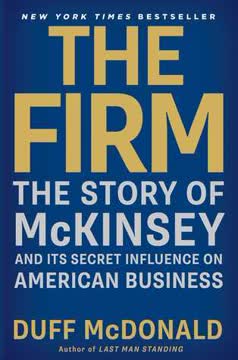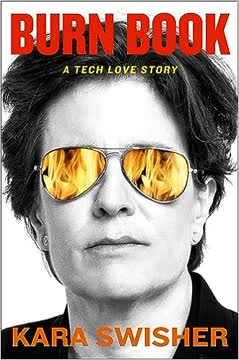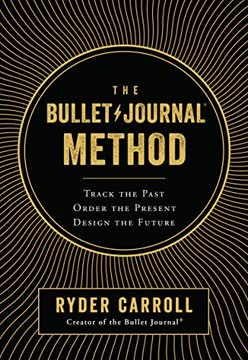Key Takeaways
1. Consulting: A World of Illusions and Exclusions
Management Consultants: They waste time, cost money, demoralize and distract your best people, and don’t solve problems.
A critical view. The book paints a cynical picture of management consulting, portraying it as an industry built on secrecy, deception, and self-importance. Consultants are depicted as outsiders who often lack genuine expertise but are adept at selling their services and extracting fees. The author questions the true value consultants provide, suggesting they often create more problems than they solve.
The allure of consulting. Despite the criticism, the book acknowledges the allure of consulting, particularly for those seeking a path to financial security and professional prestige. The author's own journey into the industry is driven by a desire to escape the instability and creative constraints of the entertainment world. The promise of a structured career path and high earning potential is a powerful draw, even if the reality falls short of the ideal.
A secret industry. The author emphasizes the secretive nature of management consulting, where protecting clients and avoiding blame are paramount. This secrecy makes it difficult to assess the true impact of consultants' work and allows them to operate with a degree of impunity. The book aims to expose the inner workings of this world, revealing the often-absurd realities behind the polished facade.
2. The Rainmaker: A Study in Calculated Deception
He is the founder and senior partner of the Media and Entertainment Group at [your top-tier firm], the largest and most influential consulting practice for these industries.
The archetype of success. The Rainmaker embodies the archetype of the successful consultant: charismatic, impeccably dressed, and relentlessly focused on generating revenue. However, the book reveals that his success is built on a foundation of lies and exaggerations. He takes credit for others' work, inflates his accomplishments, and prioritizes self-promotion over genuine expertise.
A master of illusion. The Rainmaker's ability to create an illusion of competence and influence is key to his success. He cultivates relationships with powerful people, even if those relationships are superficial. He understands the importance of appearances and is skilled at projecting an image of authority and expertise, even when he lacks the substance to back it up.
The dark side of ambition. The Rainmaker's story serves as a cautionary tale about the dark side of ambition. His relentless pursuit of success leads him to betray his colleagues, exploit his clients, and ultimately undermine the very firm he claims to represent. He is a symbol of the ethical compromises that can occur in the pursuit of power and wealth.
3. The Paradox of Consulting: Analysis vs. Sales
Principle One: One is promoted from associate to senior associate to principal based solely upon one’s ability to analyze data and present these analyses. Principle Two: One is promoted and rewarded thereafter solely upon the basis of one’s ability to sell the firm’s services.
Conflicting priorities. The book highlights a fundamental paradox at the heart of top-tier consulting: the tension between analytical skills and salesmanship. While junior consultants are evaluated on their ability to analyze data and present findings, senior consultants are primarily judged on their ability to generate new business. This creates a disconnect between the skills that are valued at different stages of a consultant's career.
The rise of the Rainmaker. The Rainmaker's story illustrates how this paradox can lead to the elevation of individuals who are skilled at sales but lack genuine analytical abilities. Despite his shortcomings as an analyst, the Rainmaker's ability to bring in new clients allows him to rise through the ranks, ultimately causing significant damage to the firm.
The devaluation of expertise. The emphasis on sales over expertise can devalue the contributions of those who are genuinely skilled at analysis and problem-solving. The book suggests that the pursuit of revenue can overshadow the importance of providing high-quality advice and delivering real value to clients.
4. Layoffs and the Cruel Reality of Corporate Restructuring
One thing I need to stress to you—this is a onetime thing…
The human cost of downsizing. The book provides a stark portrayal of the human cost of corporate restructuring, particularly the impact of layoffs on consultants' lives. The author describes the fear, uncertainty, and disillusionment that permeate the firm as consultants are abruptly terminated, often with little warning or explanation. The conference call is a symbol of the impersonal and often callous nature of corporate decision-making.
The illusion of security. The book challenges the notion that a career in top-tier consulting provides job security. Despite their high salaries and prestigious positions, consultants are ultimately vulnerable to the cyclical nature of the business and the whims of senior management. The author's own experience of being laid off shortly after joining the firm underscores the precariousness of the consulting profession.
The psychological impact. The constant threat of layoffs and the pressure to perform can take a significant toll on consultants' mental and emotional well-being. The book explores the feelings of anxiety, self-doubt, and resentment that can arise in a work environment characterized by intense competition and a lack of job security.
5. McKinsey: The Machiavellian Empire of Consulting
Fortune is a woman, and if you wish to keep her under it is necessary to beat and ill-use her; and it is seen that she allows herself to be mastered by the adventurous rather than by those who go to work more coldly.
The consulting behemoth. McKinsey & Company is portrayed as the dominant force in the management consulting industry, a firm with a global reach and an unparalleled influence on corporate decision-making. The book suggests that McKinsey operates with a ruthless efficiency and a willingness to rewrite history to suit its own narrative.
The cult of McKinsey. The book satirizes the almost cult-like devotion that McKinsey inspires in its employees and recruits. The firm is depicted as a place where ambition and conformity are highly valued, and where dissent is discouraged. The author's own experience of interviewing at McKinsey reveals the firm's elitist culture and its tendency to dismiss those who don't fit its mold.
The pursuit of world domination. The book suggests that McKinsey's relentless pursuit of growth and influence is driven by a desire for total world domination. The author uses hyperbole to illustrate the firm's seemingly insatiable appetite for expansion, implying that its ultimate goal is to control every aspect of the global economy.
6. The Absurdity of the McKinsey Interview Process
They just want to see how you think…
Mind games and estimation. The McKinsey interview process is depicted as a series of mind games designed to assess candidates' analytical abilities and problem-solving skills. The author satirizes the case study format, highlighting the often-absurd nature of the questions and the pressure to perform under intense scrutiny.
The importance of fitting in. The book suggests that the McKinsey interview process is not just about assessing skills but also about determining whether candidates fit the firm's culture. The author's own experience of being rejected despite his qualifications underscores the importance of conforming to McKinsey's specific personality profile.
The illusion of control. The author questions the validity of the McKinsey interview process, suggesting that it is more about creating an illusion of control than about accurately predicting candidates' future success. The emphasis on structured problem-solving and quantitative analysis can overshadow the importance of creativity, intuition, and real-world experience.
7. The McKinsey-Harvard Duopoly and Its Influence
Both truths are universally known, but they are never admitted.
The power elite. The book highlights the close relationship between McKinsey & Company and Harvard Business School, suggesting that these two institutions form a powerful duopoly that exerts significant influence on the U.S. economy. The author satirizes the unspoken rules that govern social interactions within this elite circle, where ambition and conformity are highly valued.
The revolving door. The book suggests that the close ties between McKinsey and Harvard create a revolving door, with graduates of HBS often going on to work at McKinsey and McKinsey alumni frequently returning to HBS as professors or administrators. This creates a self-perpetuating cycle of influence and reinforces the dominance of these two institutions.
The limitations of elitism. The book questions the value of this elitist system, suggesting that it can stifle innovation and limit diversity of thought. The author implies that the focus on pedigree and conformity can overshadow the importance of real-world experience and independent thinking.
8. The Consultant's Toolkit: Jargon and Strategic Ignorance
To be a management consultant is to be always on the defensive.
The language of consulting. The book satirizes the jargon and buzzwords that are prevalent in the management consulting industry. The author provides a "Complete Consultant's Dictionary," translating the often-incomprehensible language used by consultants into plain English. This highlights the absurdity of the industry's reliance on jargon and its tendency to obscure rather than clarify.
The art of appearing knowledgeable. The book suggests that consultants are often hired not for their expertise but for their ability to project an image of competence and authority. The author describes how consultants can use jargon and strategic ambiguity to mask their lack of knowledge and maintain the illusion of expertise.
The power of the model. The book highlights the importance of the "model" in consulting engagements. The model, typically an Excel workbook, is presented as the nexus of power, a tool that allows consultants to exert control over the client's data and shape their understanding of the problem.
9. Feedback Camp: A Ritual of Conformity and Self-Doubt
What they needed was Feedback Camp.
The absurdity of corporate training. The book satirizes the often-absurd nature of corporate training programs, particularly the emphasis on teamwork and feedback. The author describes his experience at "Feedback Camp," a mandatory week-long retreat where consultants are forced to share their weaknesses and receive anonymous criticism from their colleagues.
The pressure to conform. The book suggests that these training programs are designed to promote conformity and suppress individuality. Consultants are encouraged to adopt a specific set of behaviors and attitudes, often at the expense of their own authenticity and self-expression.
The illusion of self-improvement. The book questions the effectiveness of these training programs, suggesting that they are more about creating an illusion of self-improvement than about fostering genuine personal growth. The author implies that the focus on feedback and self-assessment can actually reinforce self-doubt and anxiety.
10. The Client's Perspective: Skepticism and the Search for Value
So what do you actually do?
The client's dilemma. The book explores the client's perspective on management consulting, highlighting their skepticism and their often-unfulfilled expectations. Clients are depicted as being caught between a desire for expert advice and a deep-seated distrust of consultants' motives and methods.
The challenge of demonstrating value. The book suggests that consultants often struggle to demonstrate the value of their services to clients. The author describes how consultants can become trapped in a cycle of data gathering and analysis, without ever delivering concrete results or making a real impact on the client's business.
The power dynamics. The book highlights the power dynamics that exist between consultants and their clients. Consultants are often in a position of authority, dictating the terms of the engagement and controlling the flow of information. This can create a sense of resentment and distrust on the part of the client.
11. The Hollow Core: Values, Hypocrisy, and the Bottom Line
Our mission is to become the world’s most valued company.
The emptiness of corporate values. The book satirizes the often-hollow pronouncements of corporate values, suggesting that they are more about public relations than about genuine ethical commitments. The author explores the disconnect between the stated values of top-tier consulting firms and their actual behavior, highlighting instances of hypocrisy and self-interest.
The pursuit of profit above all else. The book suggests that the ultimate goal of most corporations, including consulting firms, is to maximize shareholder value, even at the expense of ethical considerations. The author implies that the pursuit of profit can lead to a disregard for the well-being of employees, clients, and the broader community.
The illusion of meaning. The book questions the notion that a career in business can provide a sense of meaning and purpose. The author suggests that the pursuit of wealth and status can be ultimately unsatisfying, leaving individuals feeling empty and unfulfilled.
12. The Road Warrior's Life: A Cycle of Travel and Estrangement
It’s hard to combine being a consultant with being a mother.
The toll of constant travel. The book explores the personal toll of the consulting lifestyle, particularly the constant travel and the resulting estrangement from family and friends. The author describes the challenges of maintaining relationships while spending most of his time on the road, living in hotels, and working long hours.
The loss of identity. The book suggests that the demands of the consulting profession can lead to a loss of identity. Consultants are often forced to suppress their own personalities and adopt a standardized persona in order to fit in with the firm's culture and appeal to clients.
The search for meaning. The book concludes with a sense of disillusionment and a questioning of the value of the consulting profession. The author implies that the pursuit of wealth and status is ultimately unsatisfying and that true fulfillment lies in finding work that is both meaningful and aligned with one's personal values.
Last updated:
Review Summary
House of Lies receives mixed reviews, with an average rating of 3.40 out of 5. Some readers find it hilarious and insightful, praising Kihn's wit and accurate portrayal of consulting life. Others criticize its lack of structure and failure to deliver on its premise. Many note the book's cynical tone and limited connection to the TV show. While some appreciate the behind-the-scenes look at consulting, others find it rambling and pointless. Overall, opinions vary widely on its entertainment value and usefulness as a business book.
Similar Books









Download PDF
Download EPUB
.epub digital book format is ideal for reading ebooks on phones, tablets, and e-readers.




